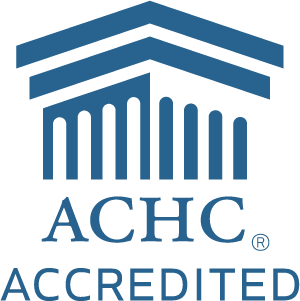As a parent, it can be incredibly challenging to talk with your child about their medical diagnosis, especially when it involves a condition like hemophilia. You may feel overwhelmed and unsure about approaching the topic, but remember you are not alone. With the proper guidance and support, discussing medical diagnoses with children with hemophilia and other medical issues can be a powerful step to helping children navigate their diagnosis.
We’ve created this guide to hopefully provide you with valuable insights and practical tips to facilitate open and age-appropriate conversations about hemophilia and other medical diagnoses.
The Importance of Communication and Support
A medical diagnosis can be a life-altering event for children and their families. It’s crucial to establish open lines of communication and provide unwavering support during this challenging time. By fostering a safe and understanding environment, you can help your child process their diagnosis and empower them to navigate their journey confidently.
The Role of Parents and Caregivers
As a parent or caregiver, you play a vital role in supporting your child through their medical journey. Your understanding, patience, and empathy will be key in helping your child cope with their diagnosis. By actively engaging in conversations and providing accurate information, you can alleviate their fears and empower them to take an active role in their healthcare.
Benefits of Early Communication
While there is no one-size-fits-all approach, it is generally recommended to have early conversations with your child about their diagnosis. By introducing the topic gradually, you can help normalize their condition and address any questions or concerns they may have. Early communication also allows your child to develop a sense of trust and confidence in you as their caregiver.
Tailoring Conversations for Different Age Groups
Speaking to Young Children (Ages 3-6)
Young children have a limited understanding of complex medical concepts. When discussing hemophilia with this age group, it is essential to use simple language and age-appropriate explanations. Focus on reassuring them that their condition is not their fault and that you will support them throughout their journey.
Speaking to Elementary Age Children (Ages 7-12)
Children in this age group can comprehend medical information better. It is important to provide more detailed explanations about hemophilia, including its causes, symptoms, and treatment options. Encourage them to ask questions and actively involve them in their healthcare decisions whenever possible.
Speaking to Teenagers (Ages 13-18)
Teenagers have the cognitive ability to understand complex medical concepts. Engage them in conversations about their diagnosis, treatment options, and potential long-term implications. Encourage them to actively manage their condition, seek reliable information, and connect with support networks of peers who may be facing similar challenges.
Creating a Supportive Environment
Establishing Trust and Emotional Support
Building trust with your child is crucial in helping them navigate their diagnosis. Be open, honest, and transparent about their condition while assuring them of your unwavering support. Encourage them to express their emotions and provide a safe space to share their fears, frustrations, and triumphs.
Encouraging Peer Support and Community Involvement
Connecting with others who have similar experiences can be incredibly beneficial for children with hemophilia. Encourage your child to participate in support groups, online communities, or local events that unite individuals and families affected by hemophilia. These connections can provide a sense of belonging and offer valuable emotional support.
Addressing Stigma and Misconceptions
Unfortunately, hemophilia and other medical issues are still stigmatized in some contexts. It’s essential to address any misconceptions or prejudices your child may encounter and equip them with the knowledge and confidence to advocate for themselves. Educate them about hemophilia or other diagnosis, its causes, and its treatment, and encourage them to share accurate information with others to dispel myths and misconceptions.
Strategies for Effective Communication
Choosing the Right Time and Place
Selecting an appropriate time and place for conversations about hemophilia can significantly impact their effectiveness. Ensure you have enough time, privacy, and minimal distractions, allowing for focused and uninterrupted discussions. Consider engaging in these conversations during calm and relaxed moments, such as leisurely walking or a shared activity.
Using Age-Appropriate Language and Explanations
Tailor your language and explanations to match your child’s developmental stage. Use simple and concrete terms for young children, gradually introducing more complex concepts as they age. Visual aids, such as diagrams or illustrations, can also facilitate understanding and engagement.
Encouraging Active Listening
Effective communication involves active listening. Pay close attention to your child’s verbal and non-verbal cues, allowing them to express themselves fully. Validate their feelings and experiences, and respond with empathy and understanding. By actively listening, you convey that their thoughts and emotions matter and are valued.
Answering Questions Honestly and Accurately
When your child asks questions about their diagnosis, provide honest and accurate answers. If you don’t know the answer, be honest and offer to find the information together. Avoid making promises you cannot keep, and emphasize that you will always be there to support them through their journey.
Allowing for Expressive Outlets
Encourage your child to express their emotions and thoughts through various outlets. This might include journaling, drawing, or engaging in physical activities. These expressive outlets can help them process their feelings and alleviate stress and anxiety associated with their diagnosis.
Seeking Additional Support
Involving Healthcare Professionals
In addition to your support as a parent or caregiver, healthcare professionals play a crucial role in managing your child’s hemophilia. Consult with their healthcare team, including physicians, nurses, and psychologists, to comprehensively understand their condition and access additional resources for support.
Connecting with Support Organizations
Numerous organizations provide support, resources, and advocacy for families affected by hemophilia. Reach out to these organizations to access educational materials, peer support networks, and financial assistance programs. They can help you navigate the various hemophilia-related challenges and connect you with others facing similar circumstances.
Considering Professional Counseling or Therapy
Professional counseling or therapy can benefit children with hemophilia and their families. A trained therapist can provide emotional support, help develop coping strategies, and facilitate healthy communication within the family. They can also guide you through the emotional challenges of managing a chronic condition.
Fostering Resilience and Empowerment
Emphasizing Strengths and Abilities
While hemophilia presents unique challenges, it is essential to focus on your child’s strengths and abilities. Encourage them to pursue their passions and interests, nurturing a sense of resilience and self-confidence. Celebrate their achievements, no matter how small, and remind them that they can live a fulfilling and meaningful life.
Promoting Self-Advocacy
Empower your child to become their advocate. Teach them about their rights, encourage them to ask questions during medical appointments, and involve them in treatment decisions. By fostering self-advocacy skills, you equip your child with the tools to navigate the healthcare system and assert their needs as they grow older.
Balancing Independence and Safety
As your child grows, they will naturally seek independence. However, it’s crucial to balance promoting independence and ensuring their safety. Educate them about potential risks associated with their condition, such as physical activities that may result in injuries. Encourage them to explore their limits while providing appropriate guidance and support.
Nurturing Emotional Well-being
Managing Emotional Challenges
Living with a chronic condition like hemophilia can bring about emotional challenges. Help your child develop healthy coping mechanisms, such as practicing mindfulness, engaging in creative outlets, or seeking emotional support from trusted friends and family members. Encourage them to communicate openly about their emotions and seek professional help.
Providing a Sense of Normalcy
While hemophilia may require certain precautions and adaptations, strive to provide your child with a sense of normalcy. Encourage them to engage in age-appropriate activities, socialize with peers, and pursue their hobbies and interests. By fostering normalcy, you help them develop a positive self-image and prevent their diagnosis from defining their entire identity.
Celebrating Milestones and Achievements
Celebrate your child’s milestones, achievements, and moments of resilience. Whether it’s successfully managing a bleeding episode or accomplishing personal goals, acknowledge their efforts and express pride in their accomplishments. These celebrations reinforce their self-esteem and motivate them to thrive despite their challenges.
Discussing a medical diagnosis like hemophilia with your child can be daunting, but you can navigate these conversations effectively with the right approach and support.
By establishing open lines of communication, fostering a supportive environment, and empowering your child, you can help them embrace their diagnosis and navigate their journey with resilience and confidence. Remember that you are not alone in this journey; resources and communities are available to support you and your family every step of the way.
Personalized Care,
Professional Excellence
Improving Your Quality of Life Is Our Mission





